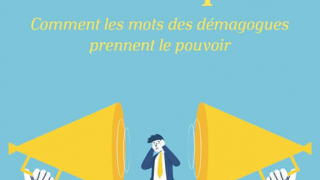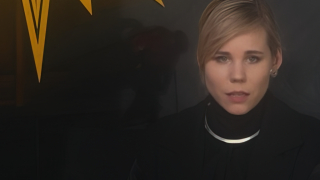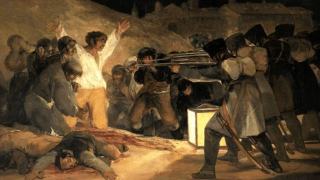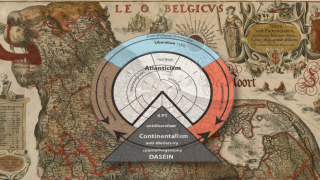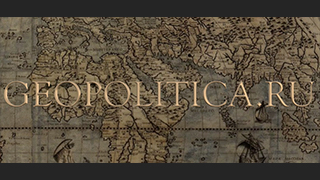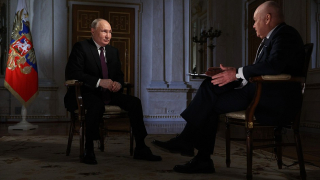Beyond Liberalism: The emergence of new identity politics
26.07.2019
Liberalism emerged as the most enduring philosophy of the enlightenment era but since the dawn of 21st century, it seems dying in vault. ‘Philosophy will not be able to effect immediate transformation of the present condition of the world. This is not only true of philosophy, but of all merely human thought and endeavors. Only God can save us’. These are the famous words of Martin Heidegger during his famous interview with Der Spiegel, in which he openly expressed his views about the crisis of liberal modernity and his contempt towards liberal dystopia.
The moral and capitalist adventure of liberalism has destroyed the very philosophical foundation of enlightenment. Basically, it is not the gangster-style authoritarianism that is threatening liberalism rather the co-opt resistance from the liberal elites, which betrayed the passion and shattered the hope of ordinary masses. According to famous American writer Adam Gopnik’s definition, liberalism can be defined in two broad contexts: one is called ‘Fallibilism”, which refers to uncertainty in the domain of empirical knowledge and the other is called ‘Imperfectability’ that mainly emerged from the consumer hampered liberal capitalism. Indeed, these two ills severely damaged the philosophical foundation of liberal altruism and morality.
Is liberalism dead? The answer is yes, because as a philosophy and as an ideology liberalism died longtime ago. It was the illiberal mantra of Capitalism that maintained liberal dystopia on the political surface while crushing its principles at the base.
Today, people are living in a hyper-delusional world, where people are confused with ideological underpinnings, civilizational cleavage, cultural disruption, anthropological idleness, sociological collapse and political chaos.
What is the way out, the people don’t know. Ordinary masses are suffering from the schizophrenia of their identity and communal miscarriage that gave birth to the perpetual crisis of essence and existence. This is what we call as neo-identity crisis that supersedes communal politics over liberal national politics. The very ‘being’ of communities feel threatened from the fallible liberal mantra of openness and unpretentious individualism. It was the lack of dialectical thinking of liberal elites that brought liberalism at the cross-road of identitarian politics.
What Russian president Vladimir Putin during his recent exclusive interview with Financial Times said; “the liberal idea has become obsolete”. Basically, he was referring to the rising anti-liberal hysteria across the west, where identitarians are staunchly opposing immigration, assaulting multiculturalism and rejecting neo-liberal capitalism.
President Putin’s response have been widely misinterpreted by the western media because what he said is the living reality of our time. Consequently, it was the liberal west which betrayed the ideals of liberal philosophy and the foundation of European enlightenment. Perhaps, the west is no more liberal and has never been liberal because the liberal slogans were disguised with the broader interest of the capitalist elites, which turned liberal enlightenment into capitalist corporatism. Likewise, this liberal corporatism has given birth to political orthodoxy widely practiced by the western liberal elites, who prioritized market morality over the personal and social morality.
Today, the ordinary masses are searching for new direction in order to secure the realm of their personal morality. Thus, the identity politics based on the philosophy of collective identities seems a new genuine way for securing the realm. Though, the liberal west calls it as the birth of ‘New Right’ but a large portion of world population is supporting this new geopolitical trend.
Even famous American political commentator Farncis Fukuyama admitted this new trend in his recently published book “Identity: The demand for dignity and the politics of resentment”. What he said; “the liberal world order did not benefit everyone and inequality increased dramatically worldwide, particularly in liberal democracies, and many of the benefits of growth flowed primarily to an elite defined primarily by education... supposing that at the core of each identity there is some deep similarity that binds people of that identity together”. With these words, Fukuyama openly admits the decaying liberal order, which once he deemed as the last government of human civilization.
Thus, the rise of Fourth political theory has put an end the feeble mantra of liberal world order by appealing to the anthropological sociology of collective identities. What Dugin writes in the “The Fourth Political theory”:
‘The subject of Communism was class. Fascism’s subject was the state, in Italian Fascism under Mussolini, or race in Hitler’s National Socialism. In liberalism, the subject was represented by the individual, freed from all forms of collective identity and any ‘membership’. While the ideological struggle had formal opponents, entire nations and societies, at least theoretically, were able to select their subject of choice — that of class, racism or statism, or individualism. The victory of liberalism resolved this question: the individual became the normative subject within the framework of all mankind. This is when the phenomenon of globalization entered the stage, the model of a post-industrial society makes itself known, and the postmodern era begins. From now on, the individual subject is no longer the result of choice, but is a kind of mandatory given. Man is freed from his ‘membership’ in a community and from any collective identity.’
In contrast, if people want to think beyond liberalism then the only opportunity which is knocking the doors of their mind is the philosophy of fourth political theory that appeals anthropological chronology and identitarian personal morality.


